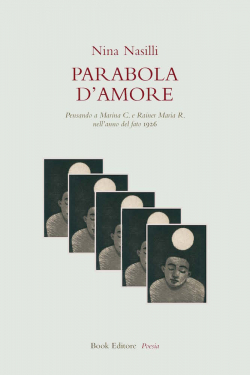Editorial
by Francesca Del Moro
“It is not easy to describe happiness because it is speechless” says the voice-over in François Truffaut’s Jules et Jim, the well-known movie based on the novel of the same name by Henri-Pierre Roché. Maybe this is due to the fact that, when you live a total and rewarding experience, you only focus on enjoying it before it vanishes. As we describe it afterwards, a shadow of longing and regret is likely to cloud the past joy. For this issue of ILLUSTRATI, poets were called to a very difficult task. They should try to represent a positive and fulfilling kind of love. Lella De Marchi and Silvio Perfetti seem to have shot a sort of movie trailer. A series of film stills shows us different moments and little details of an ordinary life animated and made meaningful by love. The very short poems by Alessandro Brusa and Ugo Rapezzi can be compared to two extremely vivid paintings: the former depicts the peacefulness after passion in shades of purple and grey whereas the latter is vibrant with colours and represents love at first sight through a creative metaphor. Last but not least, a proud and intriguing sensuousness flows through Rita Galbucci’s poem, the snapshot of a woman embodying a fulfilled and yet evasive desire.
a short list of some things you make me hear and see with your love
by Lella De Marchi
the sound of leaves
inside the new September
wind, the surprise
rolled up in the belly
that gapes open
in the mouth
with an unknown
sound, the strange
face in the crowd
coming before me
and that I welcome on my face
because it doesn’t look like me,
the thread that in wintertime
you unthread
from the pullover’s
woven fabric like a sign
that without hesitation you translate
into the word “hope”
and hold in your hands
like a dream
without restraint
a wish
a holiday,
it is not so short
the list of things
you make me feel or see
with your love
Coach 65
by Silvio Perfetti
Waking up at dawn
The cold the wait
The blue light
Inside
The bus
The fantasy
Of a man
The begging for pardon
The hands
Of the clock
The life that flows
Not falling asleep
And once again
Waking up at dawn
And Loving you
Day after day
Day after day
Naked
by Alessandro Brusa
Naked
on the bed linen that have just been changed on the grey and purple sheets and your taste that caresses my skin together with the wind we have just made love and I lie here
alive
The sound of my heels as I go by
by Rita Galbucci
The sound of my heels as I go by
drives these feet in love
that hold you tight
beneath or on top of me
knees belly sitting or standing
in the dark or in front of the mirror.
Did you hear the sound of my heels?
It was yesterday as I went by
your neighbour did
who appeared at the window and desired.
But I quickly turned the corner
and took off my shoes.
Rain-Bow
by Ugo Rapezzi
Like an arrow
through a raindrop
you have pierced me
and filled me with colours.
Parabola d’amore
by Nina Nasilli
“there is a spot – there in the infinity –
where we will touch
and our hands will speak to each other
where the parallel lines of the universe meet
and the naughty and unlearned cry with shame.”
“Dear Linda, I will call you by this name unless you don’t want me to do so.” These are the first words of the letter-foreword to this collection of poems that since the very beginning wraps the reader in sensuous coils of poetry instilling into him (or her) the dream of being the receiver of the letter, a person tied to the author by means of spiritual bonds. The foreword is a theoretical introduction to the contents that will be developed through the poems in a more direct and imaginative way without losing their philosophical depth. The “love trajectory” – whose progression is explored by the author in three stages or sections (upward phase, keystone or knot, downward phase) – is a personal continuation of the correspondence (1926) between Rainer Maria Rilke and Marina Cvetaeva, letters which express their mutual and ideal love that lived on poetry. Nina’s words inhabit the “passionate space” shaped by the two poets and convey the experience of a feeling whose power lies precisely in the fact that it keeps moving towards its object without ever reaching it. Desire vanishes as soon as it is fulfilled. A book you can’t stop reading until the end, where words, like Rilke and Cvetaeva’s, become “hands, fingers, senses, sexes” that relentlessly spread throughout the reader’s body and mind.
Nina Nasilli
Parabola d’amore. Pensando a Marina C. e Rainer Maria R. nell’anno del fato 1926
Book Editore, 2012

